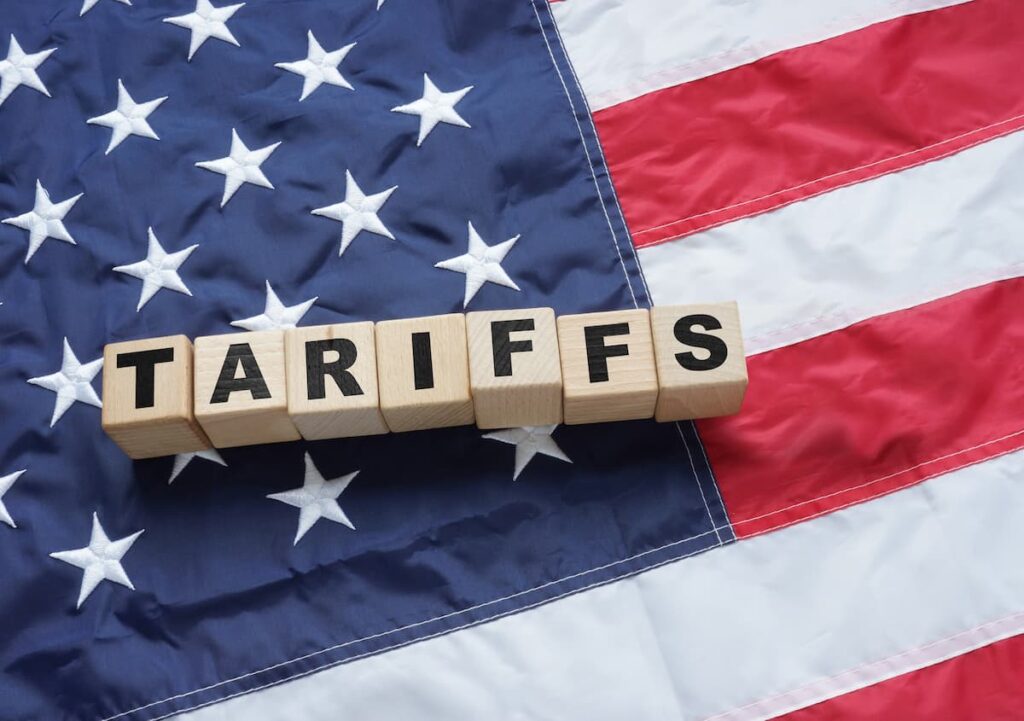Major Brands Warn That Import Duties Will Soon Impact Shoppers
As President Donald Trump’s latest tariff measures take effect, a growing list of major companies is signaling upcoming price increases, citing the financial pressure of import taxes. Retailers, manufacturers, and automakers are among those most affected by the sweeping trade policies, with consumers expected to bear the brunt of the cost in coming months.
The new tariff rules include a 10% baseline duty on most imports and a 30% rate on goods imported from China. Some specific items, such as steel and aluminum, are taxed at even higher rates. While the administration has insisted these measures will boost domestic industry, companies across sectors are warning that the financial impact will inevitably reach consumers.
Walmart, Mattel, and Best Buy Respond to Rising Costs
Retail giant Walmart confirmed in April that it would begin raising prices as early as May, with more significant increases expected by June. “Given the magnitude of the tariffs, even at the reduced levels announced this week, we aren’t able to absorb all the pressure,” CEO Doug McMillon said in a recent earnings call. Walmart’s CFO John David Rainey added that margins were already narrow and the added burden of tariffs could not be offset internally.
Toymaker Mattel echoed similar concerns. On May 6, CEO Ynon Kreiz stated that while 40% to 50% of its toys would remain under the $20 mark, many other products would become more expensive. Kreiz also publicly advocated for global zero-tariff policies on toys and games. President Trump responded with a threat to impose a 100% tariff on Mattel products, underscoring growing tensions between the administration and industry leaders.
Electronics retailer Best Buy has also signaled higher prices on the horizon. During a March earnings call, company executives warned that tariffs would “pass along some level of cost to retailers,” likely resulting in price increases for American consumers.
Shein, Temu, and the Impact on E-Commerce
Chinese e-commerce platforms Shein and Temu, which had previously benefited from the “de minimis” rule exempting low-value imports from tariffs, are also adjusting their pricing. That rule was eliminated by executive order, and both retailers have since notified customers of imminent price changes.
On April 25, Temu updated its pricing, raising the cost of two patio chairs from $61.72 to $70.17 overnight. Shein adjusted the price of a bathing suit set from $4.39 to $8.39 in the same period, reflecting a 91% increase. Both companies attributed these hikes to “changes in global trade rules and tariffs.”
Automotive Sector Prepares for Sticker Shock
Automakers Ford and Subaru are preparing for similar pricing adjustments. Ford’s CFO Sherry House noted that U.S. car prices could rise by as much as 1.5% in the second half of 2025 due to tariffs on imported vehicles and auto parts. The company also extended its employee pricing offers through July in anticipation of consumer pushback.
Subaru announced that it would also raise U.S. vehicle prices to “offset increased costs,” though specific figures were not disclosed. A spokesperson clarified that Subaru pricing decisions were driven by current market conditions rather than the origin of production.
Ford, in particular, has pulled its 2025 financial guidance and anticipates a $1.5 billion hit due to tariffs — a move that highlights the broader uncertainty within the automotive sector.
Household Brands and Apparel Join the List
The list of affected companies extends into household essentials and apparel. Procter & Gamble, which owns Tide, Pampers, and Charmin, is evaluating price increases across some product categories. CEO Jon Moeller stated on April 24 that “tariffs are inherently inflationary,” suggesting that cost adjustments for consumers are increasingly likely.
Power tool manufacturer Stanley Black & Decker raised prices by high single-digit percentages in April and signaled another round of increases later in the year. Similarly, Adidas has confirmed it is reviewing pricing in the U.S. market. CEO Bjørn Gulden attributed the uncertainty to fluctuating negotiations and said cost increases were inevitable due to higher import duties.
As tariffs reshape supply chain economics, consumers may soon see the consequences in store aisles and online carts. While some companies are attempting to delay or limit price adjustments, many are acknowledging that the cumulative cost of Trump’s tariffs will be passed down — one item at a time.


